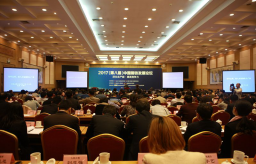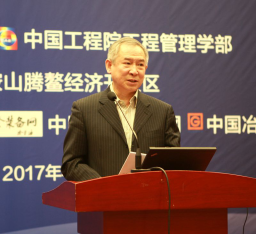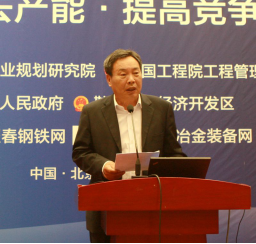By Li Shouen, CCTV.com Commentator & Panview Editor-in-Chief
Due to China's fast economic development and the consequent huge domestic demand, China's steelmaking capacity has expanded rapidly since the beginning of the 21st century.
But ever since 2008, plagued by the global finacial crisis, demand from both home and abroad drastically dropped, and the steel industry has been trapped in a cycle of excessive capacity.
Some Western countries began to blame China's steel firms for dumping in the global market and even announced exorbitant tariffs on steel products from China. Meanwhile, the overcapacity also brought about pressure on China’s economic restructuring.
Hence, how to cut overcapacity and enhance its steel product competence has become one of the major issues in the steel industry in recent years.
During last week's (April 12-13) 2017 (8th) China Steel Industry Development Forum held here in Beijing, co-hosted by the Metallurgical Industry Planning and Research Institute and the Engineering Management Division of Chinese Academy of Engineering, government officials, academicians, experts and representatives from domestic and overseas steel firms gathered to find ways out.

2017 (8th) China Steel Industry Development Forum held in Beijing Photo/Wang You
Luo Tiejun, an Inspector with the Department of Raw Materials, Ministry of Industry and Information Technology (MIIT) told the participants of the forum that the Chinese government has taken the most concrete actions in the world to tackle current excess capacity in the steel sector.

Luo Tiejun, an Inspector with the Department of Raw Materials, MIIT, speaks at the forum Photo/Wang You
He stressed that China will phase out production of low-quality steel made from scrap metal, or "ditiaogang," before the end of June. He added that China had completed the target of reducing 65 million tons of crude steel in 2016.
He also pointed out China is facing even bigger pressure in 2017 and required all steel companies across the nation must have a clear understanding of the situation and take concrete and efficient actions in cutting overcapacity.
Liu Zhenjiang, Party Secretary of China Iron & Steel Association, also agreed that there will be a hard battle ahead to slash the overcapacity in steel industry in 2017. He stressed the industry should carry on with the structural supply-side refom.

Liu Zhenjiang, Party Secretary of China Iron & Steel Association, speaks at the forum Photo/Wang You
Other participants also proposed suggestions on how to tackle this issue, including addressing the "zombie companies" issue, upgrading the steel sector through technology renovation, and enhancing international capacity cooperation.
China, as a major steel-producing, -consuming and -trading country and a major importer of raw materials, has actually been making enormous endeavors and paying enormous prices to cut excess capacity in the steel sector in the past several years.
The Chinese government has ceased to license steel projects and started to close outdated plants and eradicate "zombie" companies. China cut more than 90 million tons of obsolete capacity during the 12th Five-Year period.
Besides, the Chinese government has also committed to expanding domestic demand for steel products; for example, China is taking measures to stabilize the consumption of major steel-consuming industries, and is also increasing and upgrading the use of steel products in automobiles, machinery equipment, the power and shipping sectors.
Cutting overcapacity might cause some economic pain: China's steel enterprises are experiencing severe economic stress as factories halt production and workers are laid off. The process won't be easy, but it is critical for the industry, and also for China, and it will prove worthwhile in the long-run.
(The opinions expressed here do not necessarily reflect the opinions of Panview or CCTV.com)

Panview offers a new window of understanding the world as well as China through the views, opinions, and analysis of experts. We also welcome outside submissions, so feel free to send in your own editorials to "globalopinion@vip.cntv.cn" for consideration.















